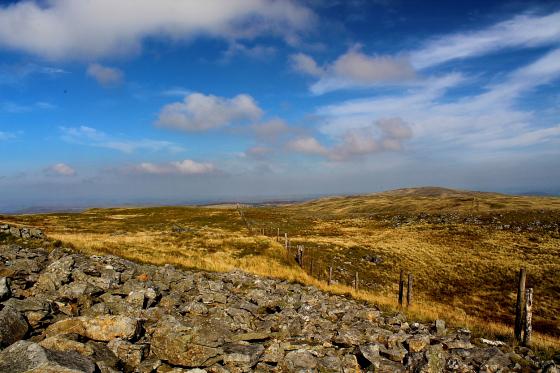
The conifer-topped hill on the right is Fron y Gog hillfort.

The conifer-topped hill on the right is Fron y Gog hillfort.

According to CPAT the stone is possibly volcanic.

Looking west-ish.

Visited on a sunny morning, a complete contrast to the downpour the previous time I came.

Standing here in the rain, maybe the weather will change again.


Sweet suburbia.



Taken 14th February 2003: A close up of the stone, looking approximately west and the setting sun (hence the sunspot...that reminds me of rather a pleasant song).

Taken 14th February 2003: This is the view from the north (or thereabouts) looking towards the mountains.

Taken 14th February 2003: Maen Llwyd stands near its original location, on a patch of grass in a cul-de-sac. This is the view from the south west. The stone is hiding behind the bench.
One of three Maen Llwyds in the area, the other two are further east. I liked this one, if only to sit next to it and watch the curtains twitching. There can’t be many standing stones you can see from the living room, I think I’ll move here.
Visited 14th February 2003: This stone is not in its original location, but I don’t know the exact circumstances of the move. I suspect that it was something to do with the creation of the housing estate that now surrounds it. The sign next to the stone says it was re-erected in 1981, but it doesn’t say much else.
Maen Llwyd stands near its original location in a cul-de-sac called Cae Maenllwyd, just off another residential road called Craig Fryn in Machynlleth. It’s situated on a triangular island of grass, with a park bench next to it, and road running around it. You really can’t miss it. Parking is no problem, because the area is extremely quiet.
Above the stone and the houses here is Parc Common and its modern gorsedd circle.
Carreg Fasnach
A spot, with a natural outcrop of rock, where tradition has it that Machynlleth markets were held during an outbreak of plague, the money used in barter being washed in the adjoining brook, called Nant yr Arian. -- Visited, 20th April, 1910.
An inventory of the ancient and historical monuments of the county of Montgomery (1911).
Not to be confused with the Maen Llwyd standing stone seven and a half kilometres to the east near Tal-y-Wern.


















































































































































